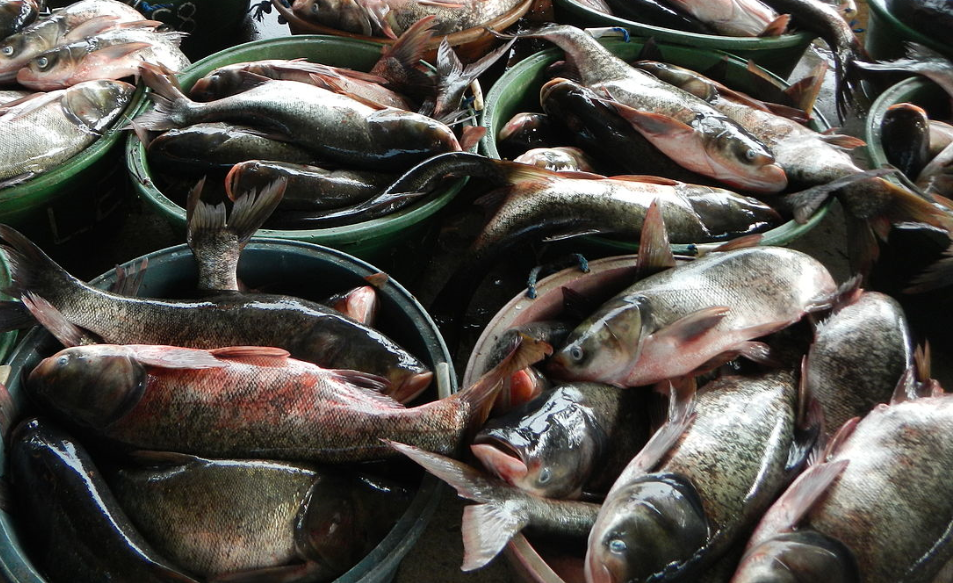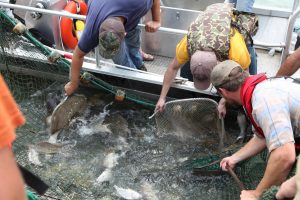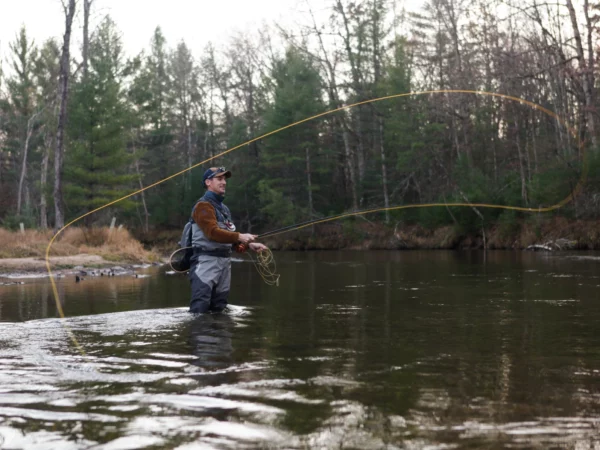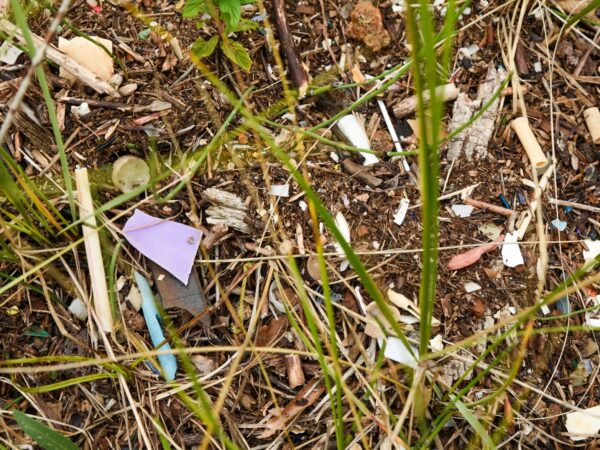
Michigan Gov. Snyder explores new funding options for carp fight
Michigan Gov. Rick Snyder picked up the pace yesterday in his quest to stop the advance of Asian carp and he’s lobbying other Great Lakes states to join him.
In a news conference in South Haven, Michigan, Snyder announced “the creation of a new Great Lakes Basin Partnership to Block Asian Carp.”

Crews search for invasive Asian carp near Chicago, courtesy of U.S. Army Corps of Engineers
The partnership will commit strategic and financial resources to support an Army Corps of Engineers proposed plan to prevent carp from moving past the Brandon Road Lock in Illinois, according to a release from the governor’s office.
If Asian carp are allowed to colonize in the Great Lakes, they could destroy the food chain, starve out certain species of fish, create safety hazards, and damage billions of dollars in fishing and tourism-related industries.
The Brandon lock is thought to be a logical choke point.
Yesterday’s action follows pointed criticism of the federal government by Snyder in his State of the State address last week. Snyder said “enough is enough,” referring to federal inertia on Asian carp.
“If the federal government isn’t going to do it, let’s get together as Michiganders to invest where we need to protect the Great Lakes.”
Snyder said that Ohio, Wisconsin and Ontario, Canada have joined Michigan in the new partnership and he hopes other Great Lakes states will too.
The Army Corps’ Brandon Road plan requires non-federal funding which logically would come from the Great Lakes states.
Snyder said he has directed the Michigan Department of Natural Resources to look for potential funding “opportunities” that may already exist within the agency to pay for Michigan’s portion of the maintenance and operating costs of the modified lock.
That annual expense to be divided among the participating states is $8 million.
Snyder also said Michigan has worked with Chicago’s Metropolitan Water Reclamation District which serves greater Chicago as a potential source of funds. Snyder’s news release says It’s possible that MWRD has federal money that could be diverted to the Brandon Road project.
But MWRD spokesperson Allison Fore told Great Lakes Now that,

Allison Fore, Public and Intergovernmental Affairs Officer at the MWRD
“while this funding could be made available through the federal legislation that was passed, MWRD does not support the current Brandon Road plan released by the Corps and would not consider funding the recommended alternative.”
Efforts and plans to stop the carp advance have been in ongoing since approximately 2004 when the first electrical barriers were installed in the Chicago Area Waterways System. The barriers were supposed to be an interim solution but remain the first line of defense.
Other options have been considered but failed to secure support.
Closing the locks leading to Lake Michigan was opposed by the Obama administration and physical separation of the Great Lakes from the Mississippi River, the vector for the carp advance, was a non-starter because of a multi-billion-dollar price tag.
Snyder has championed the Asian carp fight with his Great Lakes colleagues but has been unsuccessful in getting support from governors in the outlying states New York, Pennsylvania and Minnesota who, by geography, are less-threatened.
Illinois has opposed the Army Corps’ plan as have shipping interests. Neither support any action that would make structural changes to the waterways that could inhibit operations.
Lynn Muench of the American Waterways Operators previously told Great Lakes Now that the Army Corps’ plan is an example of a “solution for a problem that’s not there.” Muench said the carp have not advanced in 25 years.
The Brandon Road plan comes with a $275 million federal price tag and would require a Congressional authorization as well as specific Congressional funding approval in the budget.
If approved, work could begin in 2022 with completion in 2025.




